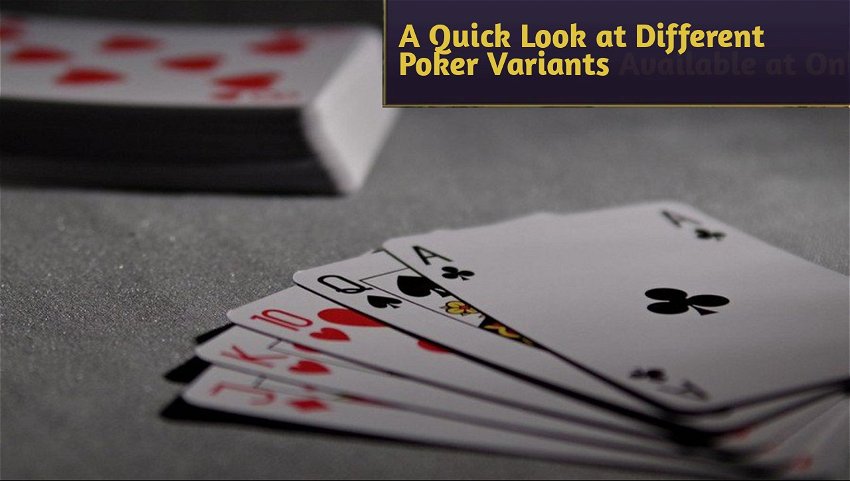Poker is a popular pastime that has been enjoyed the world over. What many don't know, is that poker is an umbrella term for a lot of different table games. Sure, you might think of the classic Texas Hold'em variant whenever you hear poker, but did you know there is such a thing as short deck? What about Omaha? Five card draw? All of these variants are popular and played by tens of millions each day. Here's a closer look at the four most popular poker variants, along with a quick rundown of the rules to get you started.
Texas Hold'em
The golden goose of poker. Texas hold'em is the defacto poker variant people think of when they hear the word 'poker'. It's the most classy version, available at most brand new online casinos in New Zealand and commonly shown in movies and TV shows when everyone is sitting around a table with two cards, each looking shiftily at the other, trying to figure out who's bluffing and who's got the nuts.
The rules are simple: players are dealt two cards face down in front of them. The object of the game is to make the best hand possible using a combination of the cards you were dealt and the five community cards that will be dealt throughout play in the center of the table. After players are dealt their two cards, a round of betting takes place where players are free to match the player's bet before them (call), raise it to a higher bet that everyone must pay to stay in the hand, fold if they wish to forfeit their hand, or check, if there is no bet to call.
After the first round of betting, three community cards are dealt face-up. Another round of betting follows, after which a single community card is dealt face-up. This is followed by another round of betting before the final community card is dealt and players place their final bets. After that, the players still in the hand reveal their cards, and the person with the best hand wins. Hand rankings can be a little confusing at first, so we suggest you keep a chart handy nearby if it's your first time playing.
Short Deck
Short deck is similar to Texas Hold'em in that it follows the same exact format of play with the betting, community cards, and two-hole cards, but (as the name might imply) you play with a smaller deck. In short deck, the cards 2 through 5 have all been removed. This makes for a more intense round of play, as players are more likely to pair the board, hit a set, or make a straight, meaning there are potentially bigger pots and more action each hand. It also means that if you have a pair, you have a pretty good chance of being beaten by someone else at the table, so don't be so sure that you've got the best hand possible.
For short deck, there are two changes to note when it comes to hand rankings. The first thing to remember is that the lowest straight is now A-6-7-8-9. The other thing to remember is that a flush is now rarer than a full house. This has led to some amusing showdowns at the end of a hand where one player thinks they have the other covered, only to quickly and devastatingly be reminded that a flush is much stronger (and therefore rarer to get) in short deck.
Omaha
Omaha is also akin to Texas Hold'em, almost how legacy MTG is similar to standard MTG. In Omaha, you're dealt four cards instead of two. You still must make the best hand possible using five cards from your hole cards and community cards, but you must use exactly three community cards and two hole cards, no more, no less. This means that a hand of 2-2-2-2 is pretty bad, since you will be stuck with a pair and almost no opportunity to improve since you're holding the other two 2s. You'd be surprised how many people think they have a four-of-a-kind only to make it to showdown and lose to triples.
Five Card Draw
Five Card Draw is perhaps the second most popular poker variant thanks to the fact that it is the default variant used on video poker machines around the world. It also happens to be the best variant to learn poker if you're new to the game, since it's quite simplistic and introduces you to the various hand rankings that are the same in Texas Hold'em and Omaha.
As the name might imply, you are dealt five cards. After a quick round of betting, you announce how many cards you would like to switch out for new ones from the deck. You can also decide to stand, and keep the five cards you were dealt. After another round of betting, if two or more players are still left in the hand, they show their cards and the person with the best hand wins the pot.






— 评论 0
成为第一个发表评论的人